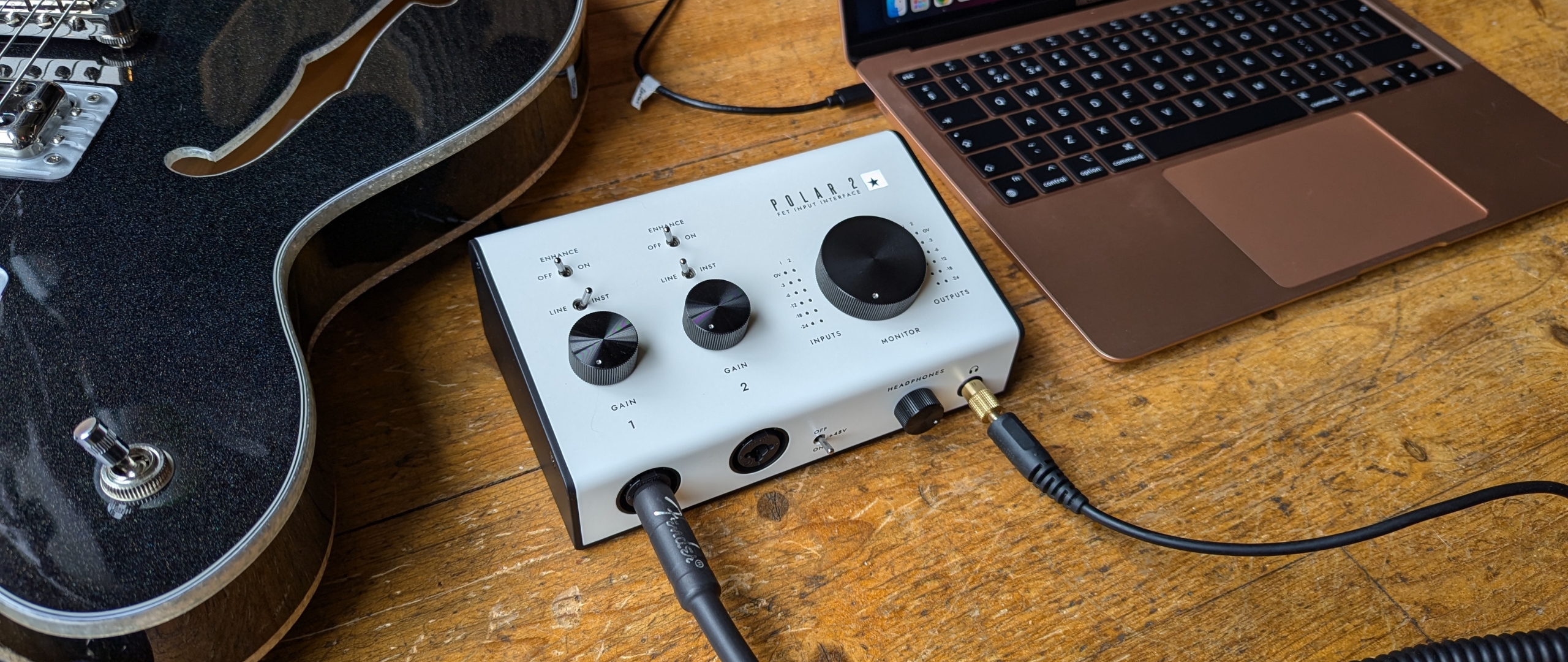MusicRadar Verdict
Coming in at a price that’s competitive with the bigger names in home recording, the Blackstar Polar 2 is not just a great audio interface for guitarists, but an excellent recording tool in its own right. Of course, guitarists will find a lot to love here, but it operates just as well with a microphone plugged into it.
Pros
- +
Great for guitars
- +
Transparent mic pres
- +
Super clean looks
- +
iPhone/iPad compatible
Cons
- -
Sparse software offering
MusicRadar's got your back
There aren’t millions of guitar-focused recording tools out there, which makes the brand-new Blackstar Polar 2 audio interface a rather unique prospect. Aiming to make recording guitar a smoother and better-sounding experience, this latest addition to the world of modern audio interfaces is designed to simulate the input of a tube amp.
The only other guitar-specific interface I’ve come across is the IK Multimedia Axe I/O, and the Blackstar Polar 2 is half the cost. Granted it doesn’t have some of the advanced features of the Axe I/O but it’s great value for money if you want a guitarist-friendly interface. As we’ll find out, it’s not just for recording guitars either…
Blackstar Polar 2 review: Features
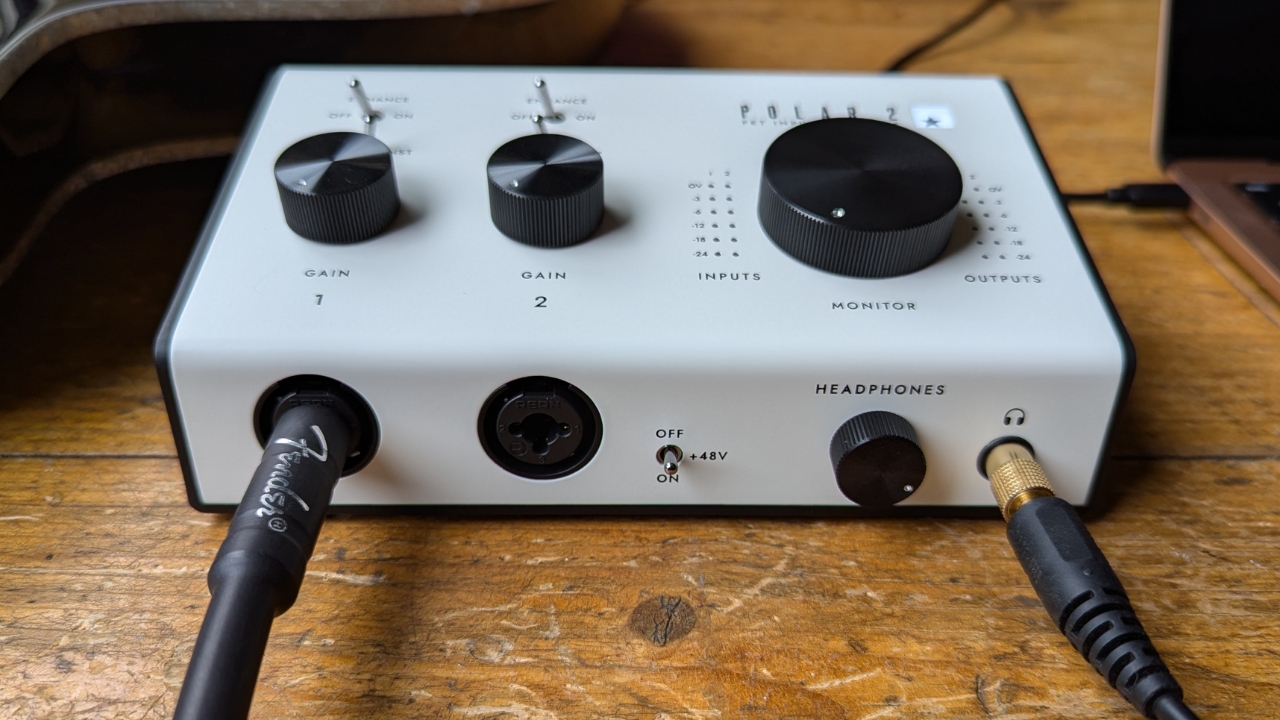
As with so many audio interfaces available today, the Blackstar Polar 2 is a 2-in, 2-out configuration. Taking out of the box I can’t help but remark at how good-looking it is. The slick black and white design is reminiscent of another Blackstar product I’ve reviewed in the Amped 1. It’s without a doubt one of the best-looking audio interfaces I’ve ever laid eyes on.
It's extremely well put together and very solid feeling, with a nice wedge shape that means you can still see the controls and LEDs when sitting down at a desk. On the front, you’ve got two combi-inputs alongside a +48V switch for phantom power, a headphone volume, and a 1/4-inch input for your cans.
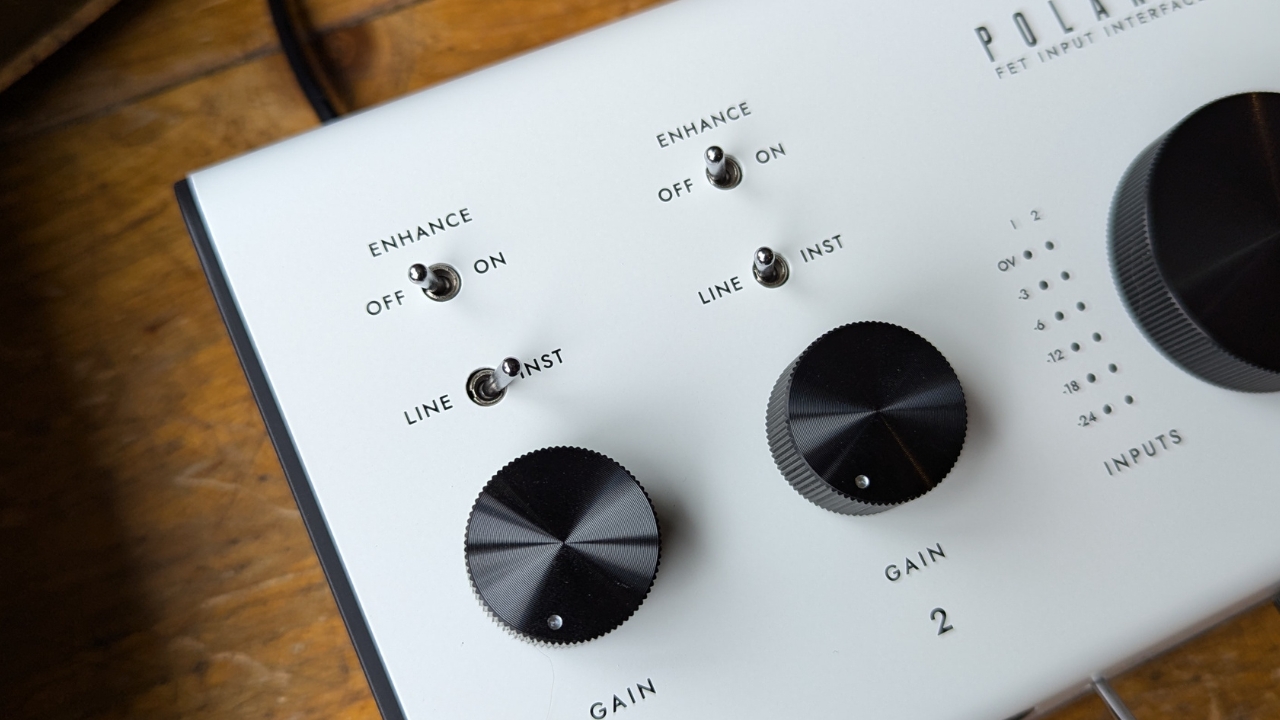
The top panel features the controls for individual channels, with each having a dedicated gain knob, a line/instrument switch, and an ‘enhance’ button - more on which later. The large monitor volume knob is flanked by input and output LEDs, with two columns for each to give you a visual cue of how each input is sounding, as well as the stereo out.
On the back panel, it’s a relatively low-key affair, with two 1/4-inch outputs, a DC 5V power out, and USB-C. The Polar 2 is bus-powered, but the manual advises you may need the additional power out when using it with certain devices. In the box, you’ve got a DC power to USB-A converter, as well as a USB-C to USB-A cable to get you up and running from the moment you get it.
Blackstar Polar 2 review: Installation
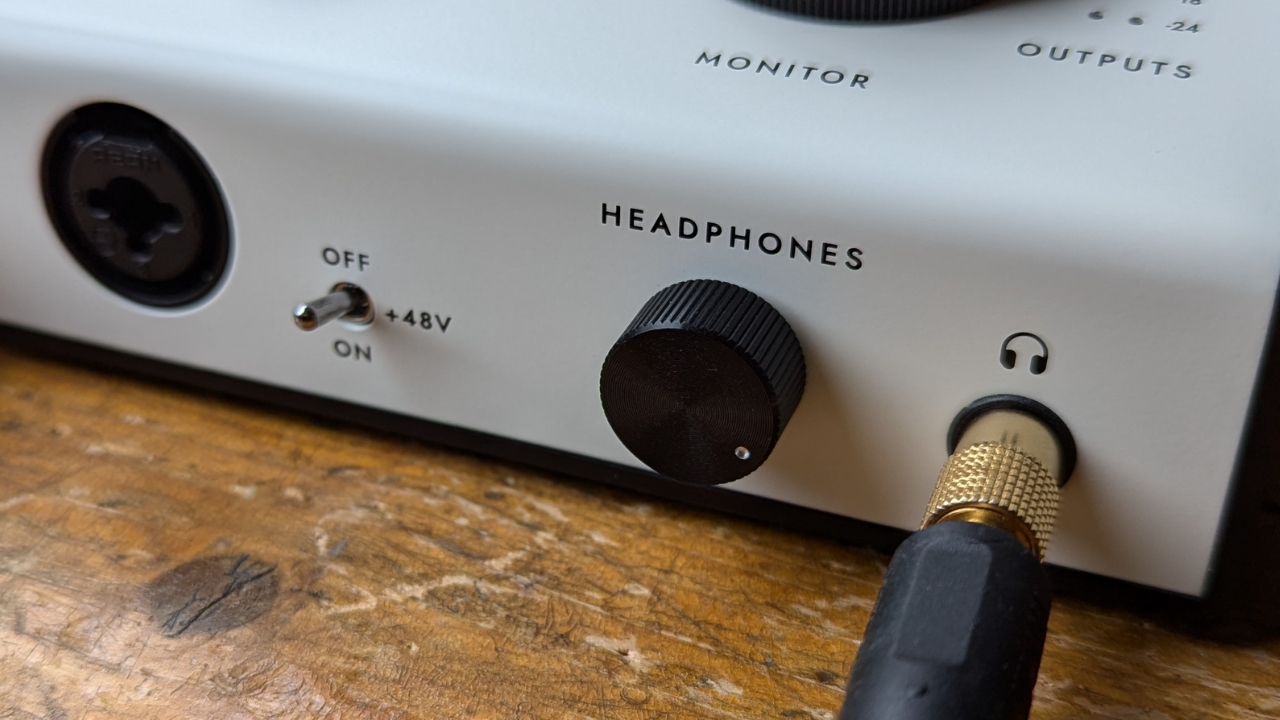
Installing the Polar 2 is a breeze on my MacBook Air. I just had to plug in, click okay to allow access and I was ready to rock with my DAW. On Windows, you’ll require the driver to get it to run in Pro Tools, but it’ll function as an audio device automatically without any further installation.
Want all the hottest music and gear news, reviews, deals, features and more, direct to your inbox? Sign up here.
The included software bundle is decent too. Alongside Ableton Live Lite, Melodyne Essentials, and Relab lx480 Essentials reverb plugin, you also get Blackstar’s St James amp modeler completely free. Not bad as it’s going for $129 at full price online. It’s not the most full-blooded of offerings compared to some others, but it’s enough to get you up and running if you don’t already have a preferred software. There are also two virtual outputs available via the control software.
Blackstar Polar 2 review: Performance
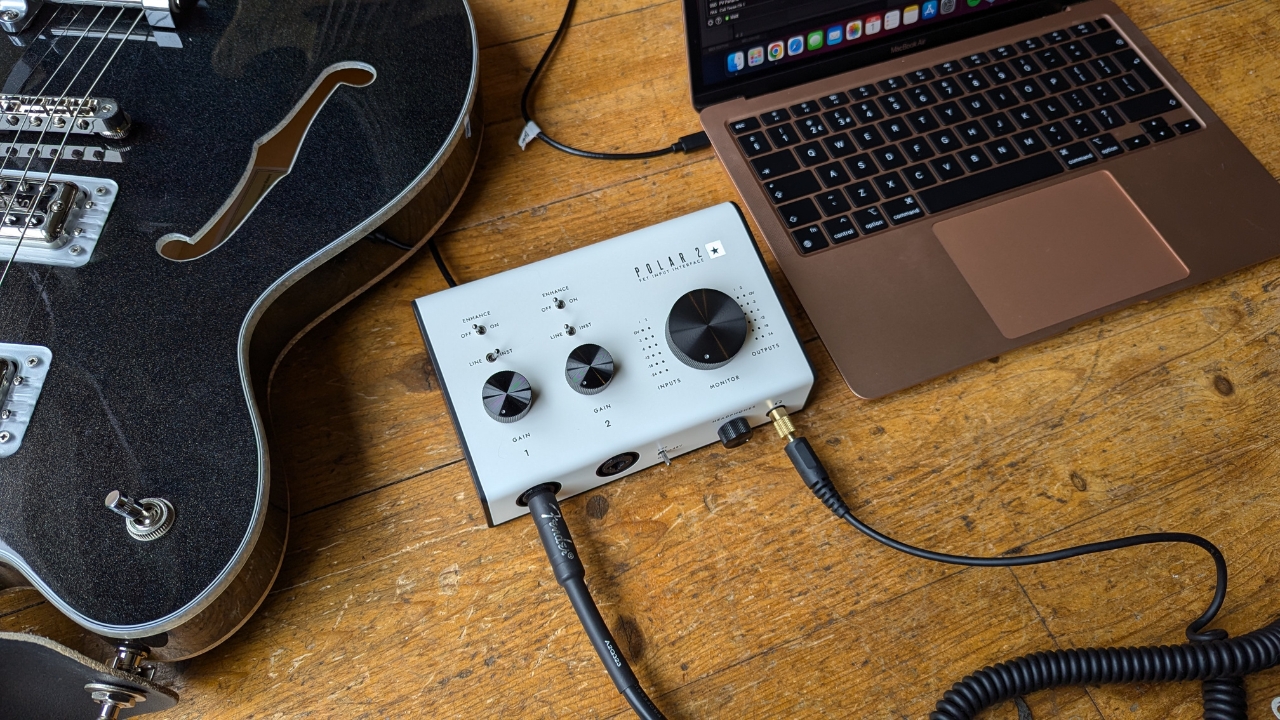
I’m a guitarist, so naturally the first thing I tried out the Polar 2 with was plugging in direct with my Telecaster. Loading up my copy of Helix Native I began on a Fender clean patch, with the channel set to instrument mode. With the gain at its lowest level, the plugin reacted really well to my playing dynamics, with a nice clear, clean tone that behaved exactly how I expected it to. It definitely feels like you’re playing through an amp, with excellent low-latency performance.
Switching to some higher gain tones I was again impressed with the touch sensitivity and feel of the Polar 2. It had me noodling for a long time without having to reach for the interface to make adjustments, which is always a good characteristic.
Trying that tempting ‘enhance’ button, I detected a difference in the signal but I wouldn’t say it completely blew me away. There’s a definite increase in the fullness and ‘bloom’ of the signal, and what sounds to my ear like a little extra saturation, but it’s overall a pretty subtle effect. On some of my Helix presets I liked the sound of it, whereas others I felt sounded better with it off.
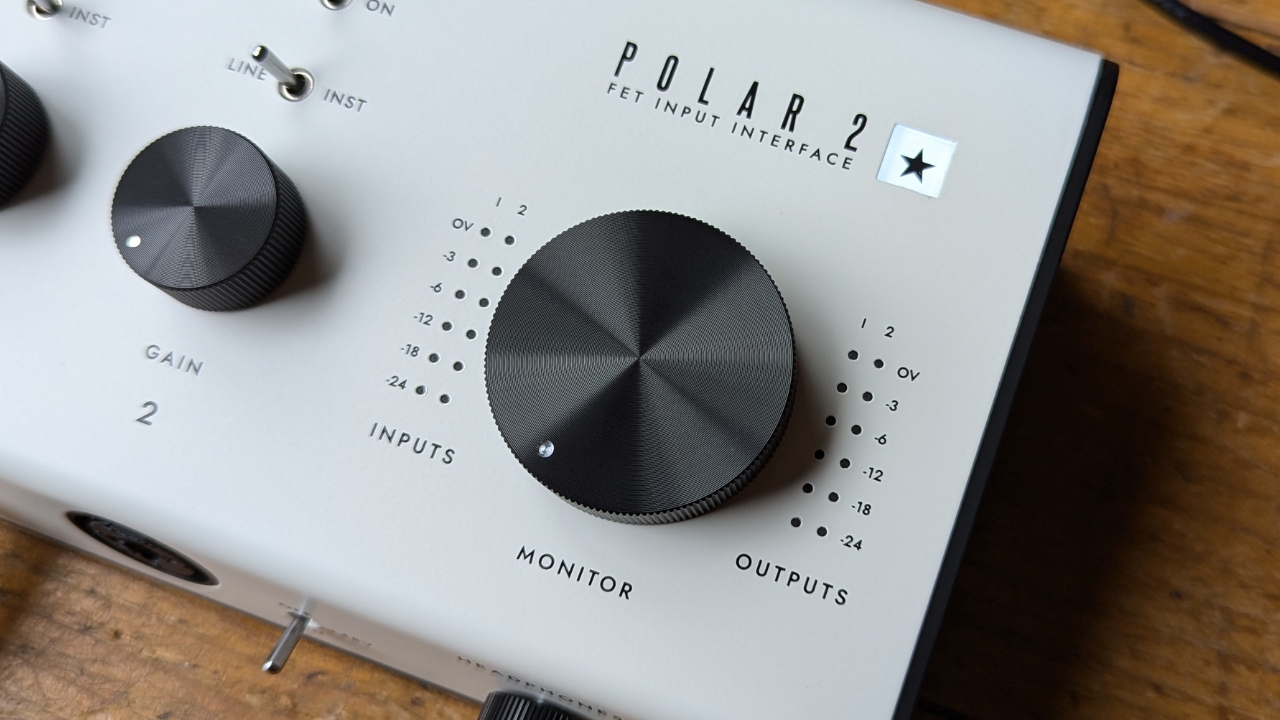
One thing I do really like is the LEDs on the front of the interface itself. They’re bright white, and the way the peak reading LED hangs around for a bit even after you’ve stopped playing is super useful, similar to what you’d get when using DAW monitoring. It gives you a great reference if you need to monitor via the interface itself and don’t have the screen space for the dedicated monitoring software.
The Polar 2 may be aimed at guitarists, but it still functions as a regular audio interface too. Plugging in my Rode NT1 condenser mic, I quickly miked up a Taylor GS-Mini to see how it behaved as a more traditional recording device. With an XLR plugged in, it emulates a Neve preamp, with the enhance switch adding a touch of high end to the EQ curve. It operates much like the ‘air’ features you find on regular audio interfaces.
It sounds lovely and open, just as good as any of your more well-known Universal Audio or Focusrite audio interfaces in this mode. It accurately conveyed the warmth of my acoustic guitar’s unplugged tone, as well as a nice ambiance from the hard surfaces of the room it was in. It elevates the Polar 2 to something much more than just a guitar-focused interface, should you want to add vocals to your productions, or start miking guitar amps and acoustic guitars for your home recording.
Blackstar Polar 2 review: Verdict
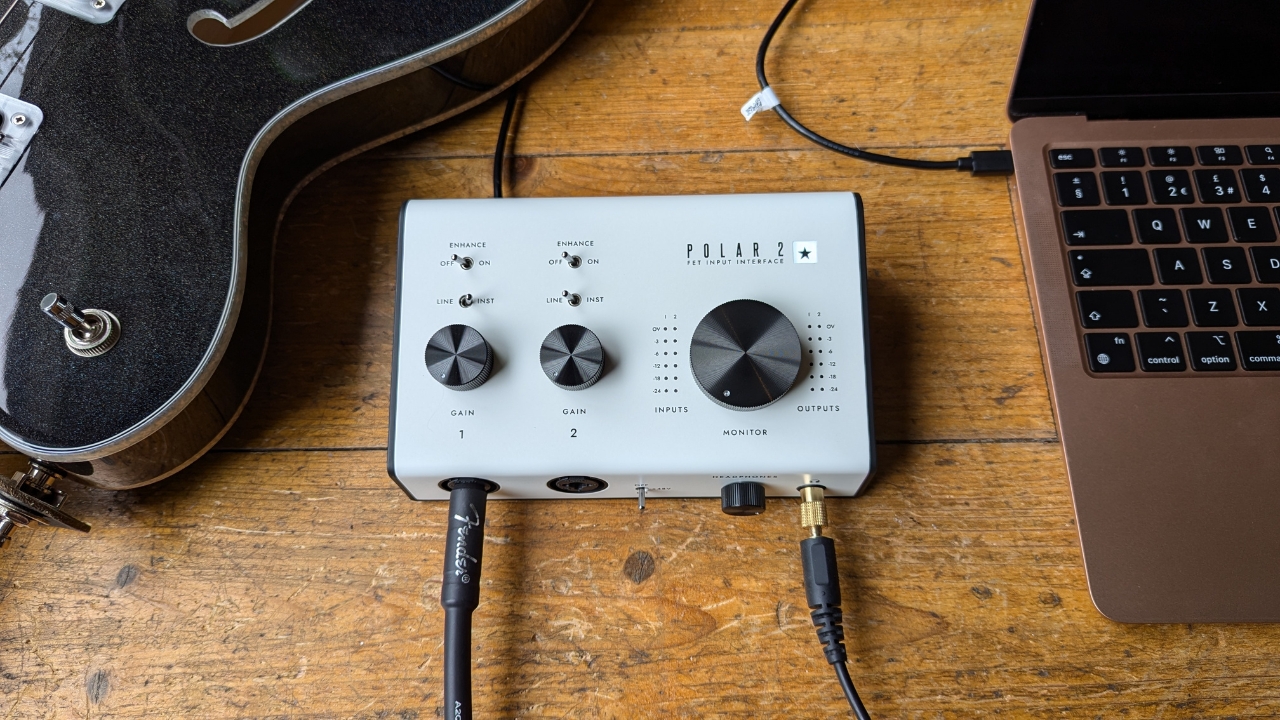
One of few guitar-focused interfaces out there, the Blackstar Polar 2 is an excellent option for the guitarist recording at home. The preamps sound great whether using a guitar or a microphone, and the overall build quality and looks of the unit are second to none. If you’re looking for a guitar-specific audio interface and the IK Multimedia Axe I/O is a bit too pricey for you, the Blackstar Polar 2 is the natural choice.
Blackstar Polar 2 review: Specs
- Price: £199/$199
- Simultaneous I/O: 2x4
- Number of Preamps: 2
- Instrument inputs: 2
- Phantom Power: Yes, 48V
- Analog Inputs: 2 x XLR-1/4" combo (mic/line)
- Analog Outputs: 2 x 1/4"
- Headphones: 1 x 1/4"
- USB: 1 x USB-C
- Contact: Blackstar

Matt is a Junior Deals Writer here at MusicRadar. He regularly tests and reviews music gear with a focus on audio interfaces, studio headphones, studio monitors, and pretty much anything else recording-related. Matt worked in music retail for 5 years at Dawsons Music and Northwest Guitars and has written for various music sites, including Guitar World, Guitar Player, Guitar.com, Ultimate Guitar, and Thomann’s t.blog. A regularly gigging guitarist with over 20 years of experience playing live and producing bands, he's also an alumnus of Spirit Studios, where he studied studio engineering and music production. When not writing for MusicRadar, you'll find him making a racket with northern noise punks Never Better.
